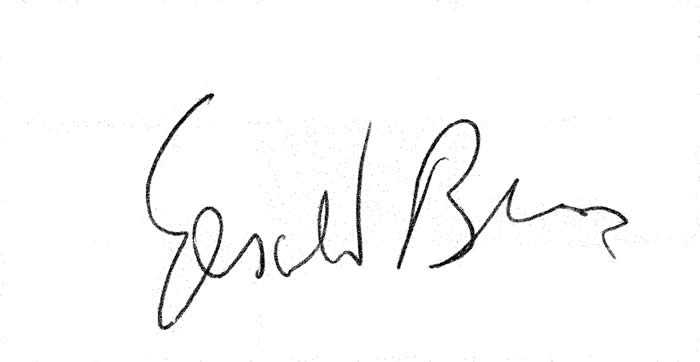
was secretary to a man in a genetic engineering firm one of the bombs killed. “It’s a small world,” she said.
In the AP photo his eyes look like mine. On television I looked like death, gaunt, pouched like Auden, unshaven.
The newspaper says his family provided the evidence that nailed him.
Which is only putting pieces on the board, obscuring them like grout not wiped off tile,
the damage done my class by circumstance unclear. Some of us died. The Adams House
swimming pool is drained and dry. My classmate Trudgian (troo-jen), Harvard Magazine said,
is dead. She’d take orders for tickets in the HDC office, under posters illuminated by her blondness,
while I read to keep her company, my bookbag less full than hers. Looked in the windows of J. Press,
ate tuna salad sandwiches at Elsie’s. The band room Coke machine vended short beers for a nickel.
Were we happy? The part of Kant that seemed to appeal to Ted was his ethics, anyone
a loaded gun who legislates for us. Rapunzel, Margaret, Ms. MacLeish’s champagne-pale hair
were values vivider than ethics, economics, pity (at this date) as implausible as sex,
it was nothing in that pale lemon light, a creampuff in the mouth, as Stevenson’s Young Man
finishes his tray. Even Nestor sounds wrong totting up the men he knew. Not very
wrong, but wrong. “We live in an occupied country,” says Stafford, drawling it.
Whether AIDS came from monkeys, or Chicago vaccinations, something’s knocked us all flat,
unexpectable resurgence of the heterosexual novel. Anything you say does damage, anything.
Everything is wrong. The genetics man was only injured. Our all-night conversations didn’t include Ted.
All right? There’s factual errors. The Newsweek piece was poetry for the tone of it, unexceptionable.
Time called this morning and I said leave my name out of it. The woman who works the shop next door
said “now you’re a celebrity” and I nearly tore her throat out (bakery woman: “I saw you on TV.”)
By good luck I’d other things to do than self-regard, today’s taping at the bookshop rote, no questions, dull.
Good. How do you handle the unhandlable? I’ve theories, gorgeous, no one cares about,
defeasible by sitting ten seconds in his cell. He’s like me and I’m using it to find . . . how I’m
myself in the face of him, have reason on the earth. Trammell from Texas said of the coyote line,
“They should have said he ate turnips.” And wrote a villager in stilted Spanish. I expect
the SWAT knock any day. The family said they wished for anonymity, just a wish.
I wrote a little book about it. Let that do. Today a book defending Wordsworth’s lapse
by a Dean of Harvard Divinity School, says he knew the theory prepense got him into trouble,
quotes approvingly passages from Jeffrey, Wilson (so often slammed) as really pretty cogent
and nothing Wordsworth himself didn’t come to agree to. Sanity, it gives me hope, invades us too.
If we write badly because we used to know Coleridge we can right that, or regret it, need not be
fixed in ourselves like Merlin in octahedral tourmaline, flush of watermelon-pink toward
the top going to green, near his feet. Being locked in was in a way his choice, “I should
remain immobile” where he might have said “I could,” all spells, a friend says, cast on ourselves.
A hundred alien cultures touched on, like the worst of Larry Niven, wonders of which
Keats grew sick, hithers and thithers to no purpose in Endymion, occasions for descriptions
of lush scenes. And yet the defense of adolescent love at the start of Book II is admirable, a stick
to beat history yet admirable, democracy of feeling overriding Fleece, Grail, Elaine gestating Galahad
so much more fun than Mordred.
I’ve seen, at half-price in the shop next door, a rubber stamp with Adam and Eve figures, naked
flanking a tree with globed fruit, leaves, the trunk of the tree the body of a skeleton, outstretched
arms its branches, or their matrix, the head tilted a bit, almost archly, of course a skull, incised
pink rubber, stamp never used, applied to ink. Even in its seventeenth-century vulgarity mystery
of bodied flesh, a tree you daren’t eat (but will), myth flattened into logo, is something. So,
I’ve just bought it, piecing through my purse for dimes. Adam’s left leg -- of course it’s
Adam -- is in shade, a confused stippling in the rubber. The skull, inclined a bit up, actually, looks
toward Eve, whose hand (at the outside of the image) cups a fruit, mid-thigh, her right forearm elevated
toward another. Noses but not much chin, they look Dutch. All stand on a burst of weeds from which a twist
of shin, dead center, defines the tree, a printer’s colophon, the bones, that’s to say, surrounded by life.
The fruit could be anything, same size as her breasts. On the phone this morning I talked to one about knowing
when one’s been arrogant, forced on oneself a piece of writing’s section, without it wouldn’t’ve bought the stamp.
It is pretty, a snake looped over the ribs, incidentally, proportioned to keep the stamp solid through repeated printings.
Those considerations, structural strength at the level of wood block, don’t at all rob it of sincerity.
Copyright Gerald Burns 1995-1997